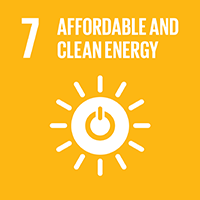Smart Energy Municipalities Project (SEMP)
The Smart Energy Municipalities Project (SEMP) supports Albanian municipalities in establishing effective energy management and implementing the national energy policy. Energy efficient municipalities should contribute to low-carbon economic development, improved quality of life and reduced environmental pollution. Two main outputs of the SEMP project are "Improved Energy Management Framework" & "Better Services through Effective Institutions".
These outputs will be pursued through the development of a local Energy Management System (EMS) based on the European Energy Award (EEA) in four pilot municipalities, complemented by tailored capacity building and awareness raising activities as well as EE quick win investments. On this basis, the project will prepare and introduce a nationwide implementation of this approach by designing and supporting the national roll-out of the Energy Management Framework.
Component 1A - Based on the EEA tools and methodology, a customized energy management system will be implemented in the 4 pilot municipalities. The GFA consortium assisted the municipalities of Shkodra, Berat, Korça and Përmet to establish an appropriate Energy Management System (EMS). This included assistance in setting up an appropriate administrative structure, conducting an energy diagnosis, and developing an energy vision. On this basis, Municipal Energy & Climate Action Plans (MECAPs) were developed to prioritize actions. With the support of the GFA Consortium, the pilot municipalities will implement these measures following the EEA methodology, with the ultimate goal of achieving certification for sound energy management. To facilitate continuous improvement and monitoring, adequate qualitative and quantitative tools have been provided and adapted to local needs (e.g. energy accounting tool - EnergCoach). Peer-to-peer exchange among the pilot municipalities and with other EEA municipalities (study tour) supported the implementation of these activities. Based on the EEA certification methodology, an Assessment Guidance for sound energy management was developed, allowing for standardized assessment and ranking of the quality of municipal energy management. The consortium assessed the performance of each pilot municipality, while the level of performance was linked to financial support for quick-win investments and access to finance.
Component 1B - The SEMP team designed a preliminary national energy management framework. Based on the experience gained under Component 1A, the consortium, together with the Agency of Energy Efficiency (AEE), developed a preliminary draft National Energy Management Framework (EMF). This included a set of recommendations for the design of a national EMF, including a standardized municipal EMS, institutional set-up, proposed assessment and certification process, financing and business model, and a strategy for the roll-out of this framework to all municipalities.
Component 1C - It is envisaged that the SEMP will support the roll-out of the National Energy Management Framework. The consortium will finalize the design of a National Energy Management Framework, support its implementation and anchoring within central government, train local EMS consultants, and support the roll-out strategy and promotion of the framework. In addition, long-term incentive schemes linked to municipal energy management performance will be established.
Component 2A - The SEMP strengthened the capacity of municipalities to prepare and implement infrastructure projects through the joint implementation of Quick Wins. The QW investments serve as "demonstration projects" for the public and other municipalities, as well as case examples to optimize the preparation and implementation of infrastructure projects in each pilot municipality. Component 2A includes support for all activities from design to maintenance of a municipal street lighting project, which was confirmed as the most favorable investment option during the feasibility study. In parallel, the consortium provided specific training on project identification, feasibility studies, technical design, procurement and supervision of project implementation.
Project Preparation Fund: Following the results achieved under Component 1A, municipalities that had significantly improved their energy management received additional support in the form of PPF consulting through local and international experts to prepare their own sustainable infrastructure projects. This additional support of CHF 200,000 for four municipalities is intended to prepare measures identified in the MECAPs under Component 1A, with the aim of developing bankable projects ready for implementation.
Component 2B - Institutional Strengthening, Awareness Raising and Policy Dialogue Activities The consortium provided training and specific technical assistance to key institutions in the energy sector, mainly municipal administrations and the Agency for Energy Efficiency (AEE) at the national level. Support included energy auditing, regulations and energy data management. Awareness-raising activities for decision-makers and the population supported the development and implementation of municipal communication and awareness-raising strategies. At the national level, policy dialogue activities in cooperation with the World Bank, EBRD, KfW and the EU will support an enabling policy and regulatory framework for sustainable energy management and promote the acceptance of the National Energy Management Framework. Citizens of selected municipalities will benefit from energy efficient public services provided by effective municipal administrations. Institutional strengthening, awareness-raising and policy dialogue measures will support alignment with national policies.








